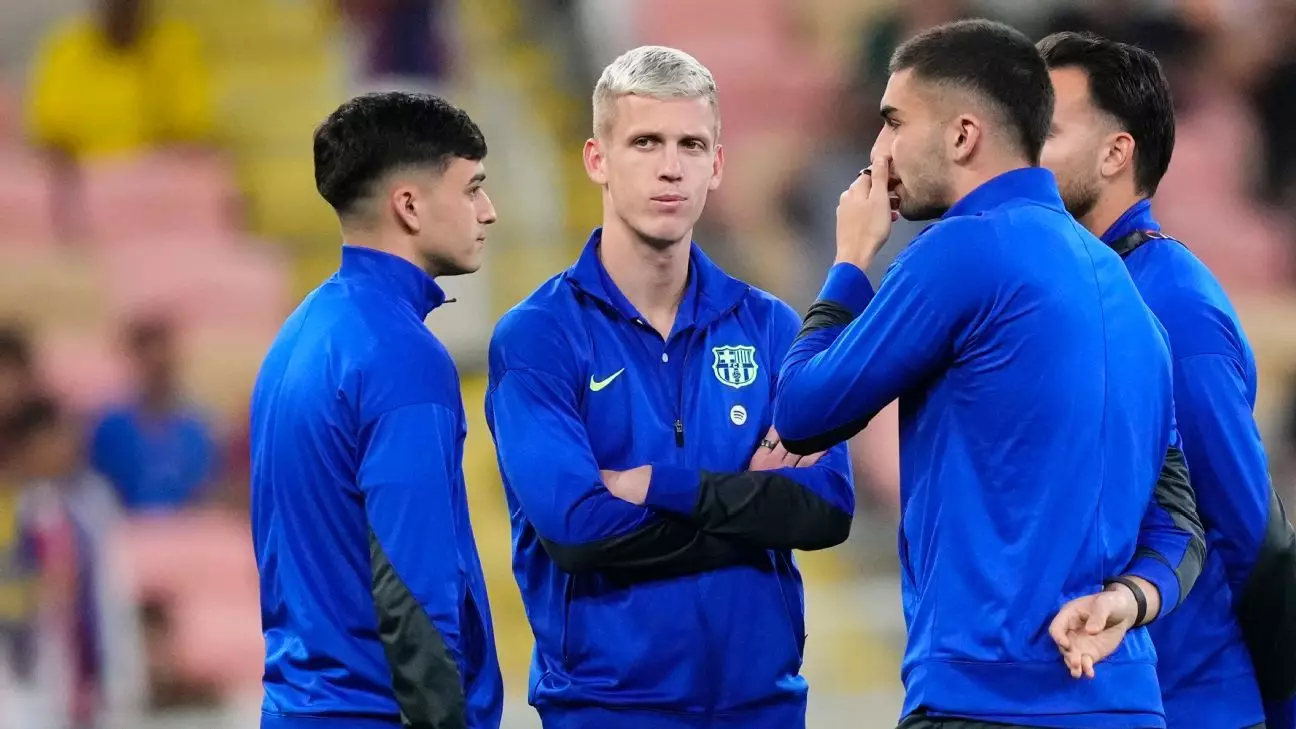The recent decision by Spain’s Sports Council (CSD) to grant temporary playing registrations to Barcelona’s Dani Olmo and Pau Víctor has stirred a significant controversy within Spanish football. This situation sheds light on the broader issues of compliance, governance, and fairness in a sport under intense scrutiny, as Barcelona’s actions raise questions about the integrity of football regulations and the equitable treatment of all clubs involved.
Barcelona, a club with a storied history and immense financial clout, found itself in hot water after failing to meet a deadline set by LaLiga and the Royal Spanish Football Federation (RFEF) related to financial fair play obligations. The failure to comply with these regulations led to the denial of registration for Olmo and Víctor, two players who were expected to contribute significantly to the team’s ambitions. Yet, the CSD’s subsequent decision to allow their temporary registrations, despite Barcelona’s prior noncompliance, elicited outrage from rivals, most notably Athletic Club.
This episode raises critical questions about the consistency and transparency of regulatory bodies in football. The regulations are ostensibly designed to create a level playing field, yet the ability of one club to overcome such barriers through an appeal system highlights a significant potential imbalance in power dynamics within Spanish football.
Athletic Club President Jon Uriarte labeled the CSD’s decision as “grotesque,” questioning the fairness of the provisional registrations and criticizing the overall governance structure that allows such decisions. His statements reflect a growing concern among clubs about the integrity of competition when financial clout and political connections can effectively circumvent established rules. Uriarte’s frustration resonates deeply, portraying a picture of a league where the apparent flexibility of regulations seems to favor certain clubs over others, potentially undermining the competitive spirit that drives the sport.
Uriarte’s remarks also opened a window into the emotional landscape of club managers and players who strive to uphold the spirit of competition. His comments reveal a palpable sense of disillusionment regarding the viability of a system that appears to be rewarding non-compliance while placing undue burdens on clubs trying to maintain integrity in their operations.
In response to the backlash, Sporting Director Deco defended Barcelona, emphasizing that every club has its issues and should focus on their own circumstances. He positioned the decision within the realm of the governing bodies and courts, suggesting that there must be a valid reason for the CSD’s ruling. However, Deco’s argument, while diplomatic, may not fully address the core concerns raised by Athletic Club and others who feel marginalized by the decision-making process.
This conflict illustrates a notable divergence in perspectives among clubs within LaLiga—Barcelona, steeped in a culture of success and ambition, vs. Athletic Club, whose proud adherence to principles of local identity and fairness guides their operations.
Iñaki Williams, an Athletic forward, brought a broader perspective on how such controversies could tarnish the image of Spanish football. He acknowledged the shock among players and fans alike and expressed hope for a resolution that prioritizes the sport’s integrity. Williams’ remarks underline an essential aspect of professional football: that the decisions made far beyond the pitch can significantly affect public perception and supporter loyalty.
This situation is emblematic of growing dissatisfaction within football’s ranks regarding governance and transparency. As clubs come under increasing pressure to comply with financial regulations while navigating complex bureaucratic structures, the need for clear, consistent, and fairrules becomes ever more critical.
The unfolding drama surrounding Dani Olmo and Pau Víctor’s temporary registrations encapsulates pressing issues within Spanish football. As the governing bodies grapple with ensuring compliance while empowering clubs, achieving a balance that safeguards the integrity of the game is paramount. Stakeholders must engage in meaningful dialogue to address the discrepancies in how regulations are enforced, fostering an environment where all clubs can compete on a truly level playing field.
In the end, the governing principles of fairness, transparency, and accountability must take precedence over political maneuvering and financial disparity, ensuring that the beautiful game is governed with the diligence and respect it rightly deserves.


Leave a Reply